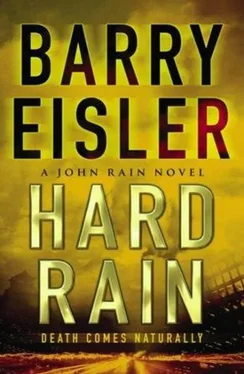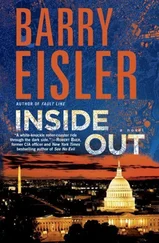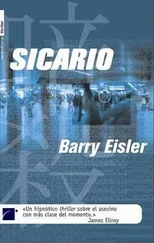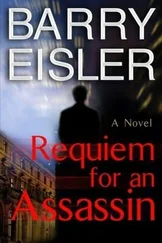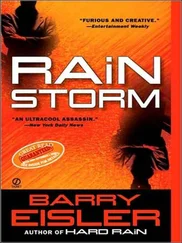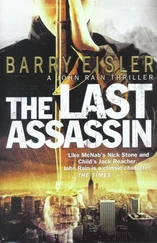He glowered. “You robbed me.”
“You’re lucky you didn’t pay a much higher price than that for trying to follow me, son. Now let’s see if the guy I’m going to see is willing to give you the assistance you want.”
I took him to Christie Tea & Cake, the kissaten that Tatsu had proposed earlier. We walked the short distance from JR Harajuku station. The proprietor, perhaps remembering me and my seating preferences from my Tokyo days, led us to one of the tables at the back of the long, L-shaped room, where we could sit hidden from the window in front.
Kanezaki ordered an Assam tea set. I asked for jasmine, both for myself and for our yet-to-arrive third party. After the day we’d just had, I figured Tatsu and I could use something low-caffeine.
We made small talk while we waited for Tatsu. Kanezaki was surprisingly garrulous, perhaps out of nervousness at his circumstances. “How did you get into this business?” I asked him.
“I’m third-generation American Japanese,” he told me. “ Sansei . My parents speak Japanese, but they used English at home with me so I only learned what I picked up from my grandparents. In college I did a home-stay program in Japan, in Nagano-ken, and I loved it. Kind of put me in touch with my heritage, you know? After that, I took all the Japanese courses I could and did another home stay. During my senior year, I met a CIA recruiter on campus. He told me the Agency was looking for people with hard language skills-Japanese, Chinese, Korean, Arabic. I figured what the hell. I took the tests, passed a background check, and here I am.”
“Has the job met your expectations?” I asked, with a small smile.
“Not exactly. But I can roll with the punches. I might be tougher than you think, you know.”
I thought of his surprising lack of fear during our initial encounter, the way he’d collected himself after watching me take out his partner, and wasn’t inclined to disagree.
“Anyway,” he went on, “the main thing is that the job puts me in a position to serve the interests of both countries. That’s what really attracted me to it in the first place.”
“How do you mean?”
“The U.S. wants Japan to reform. And Japan needs to reform, but lacks the internal resources to do it. So gaiatsu from the U.S. is in both countries’ interests.”
Gaiatsu means “foreign pressure.” I wondered briefly whether there was a country outside Japan that had a dedicated word for the concept.
“Sounds idealistic,” I said, probably failing to hide my dubiousness.
He shrugged. “Maybe. But we’re one world now. If Japan’s economy sinks, it’ll drag the U.S. down with it. So U.S. ideals and U.S. pragmatism on the one hand, and Japanese needs on the other, are all aligned. I feel lucky to be in a position to work for the countries’ mutual welfare.”
I had a brief image of this kid ten years from now, running for office. “You given any thought to what you’ll do if you ever have to choose?” I asked him.
He looked at me. “I’m American.”
I nodded. “Then as long as America lives up to her ideals, you ought to be fine.”
The waiter brought our tea. A moment later Tatsu appeared. If he was surprised to see me with Kanezaki, he didn’t show it. Tatsu has a great poker face.
Kanezaki looked at me, then at Tatsu. “Ishikura-san,” he said, half-rising out of his seat.
Tatsu bowed his head in greeting.
“You told us he was dead,” Kanezaki said, inclining his head toward me.
Tatsu shrugged. “At the time, I believed he was.”
“Why didn’t you get in touch when you learned he wasn’t?”
I saw a trace of amusement in Tatsu’s eyes at this kid’s straightforwardness, and he said, “Something tells me it was fortunate that I did not.”
Kanezaki furrowed his brow, then nodded. “That may be true.”
I looked at Kanezaki. “Tell him what you told me,” I said.
He did. When he was done, Tatsu said, “It seems the most likely explanation for this unusual chain of events is that Station Chief Biddle or someone else in the CIA is preparing to turn you into a twenty-first century Oliver North.”
“Oliver North?” Kanezaki asked.
“Yes,” Tatsu went on, “from the Iran-Contra scandal. The Reagan administration had decided to circumvent a congressional ban on funds to the Nicaraguan contras by selling arms to Iranian ‘moderates’ and channeling the resulting proceeds to the contras without Congress’s knowledge. Oliver North was a National Security Council staffer who ran the program day to day. When the program leaked, his betters in the NSC and the White House blamed him, as a way of escaping prosecution, for having instigated and run the program without their knowledge.”
Kanezaki paled. “I hadn’t thought about it that way,” he said, looking from left to right as though trying to rediscover his bearings. “Oh man, oh man, you’re right, this really could be like Iran-Contra. I don’t know who dreamed up Crepuscular in the first place, but someone terminated it, maybe Langley, or the NSC, or maybe even the Senate Select Committee on Intelligence. And now Tokyo Station is still running it, I’m still running it, with funds from some source outside of Congress’s purview. Oh man, oh man.”
I had a feeling he was imagining himself getting sworn in before some special congressional committee established to investigate the latest scandal, sitting alone, his hand raised, the congressmen and their staffers prim and hypocritical behind their polished wooden dais, the video camera lights hot and blinding, while his superiors clucked their tongues and leaked to the press about the talented young CIA officer whose overly strong convictions had made him turn rogue.
Tatsu turned to me. “I have something for you.”
I raised my eyebrows.
“Kawamura Midori. It seems that, in her zeal to locate you, she retained a Japanese private investigative firm. Many of these firms are staffed with ex-Keisatuscho and other law enforcement officials, and I have contacts among several. She knew where your friend lived and gave the firm his address. They attempted to follow him, but apparently were unable to do so because he was surveillance conscious. They did not learn your whereabouts. I believe this is why Kawamura-san came to my office recently with threats of a scandal. Her other means of locating you had not proven useful.”
She must have been using an inheritance from her old man-the fruits of the corruption that had enriched him and disgusted her. There was some irony there.
I thought of the way she had seemed evasive at the Imperial. Now I knew why. She’d hired a PI to tail Harry and didn’t want to tell me.
“These PI firms,” I said. “Are any of them connected to Yamaoto?”
“Doubtless.”
“That’s why he put Yukiko on Harry,” I said, finally seeing it. “It wasn’t the Agency’s request-they didn’t tell him Harry was connected to me. It was Midori’s PI people. She would have told them that they were following Harry to find me. When that information got back to Yamaoto, he wanted his own coverage-better coverage than the PI firm, or even the Agency, would be capable of. Her job was to stay close, really close, and learn as much as she could to help them get to me.”
I pictured it. Yamaoto, probably through intermediaries, got Harry’s boss to take Harry out to “celebrate” about that happy client. Harry’s boss wouldn’t know the purpose of all this, just where and when he was supposed to show up with Harry. Yukiko was waiting there, with a line about configuring her Macintosh and bedroom eyes behind it. Harry swallowed the whole thing without a burp. He led Yukiko and her employers straight back to his apartment, and eventually to me.
Читать дальше
